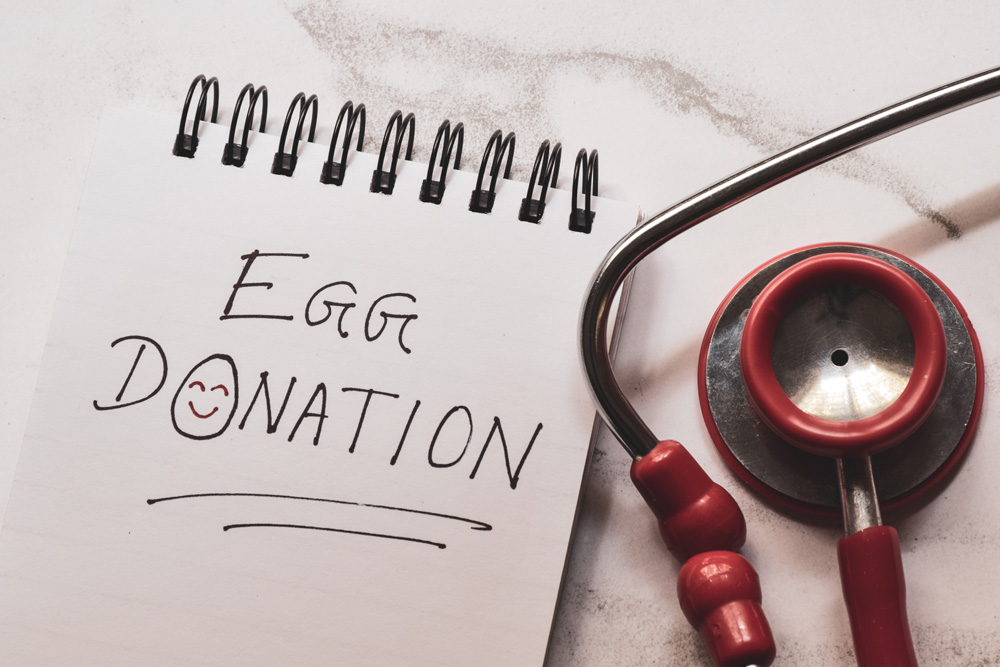Can Egg Donation Cause Ectopic Pregnancies in Egg Donors?

Egg donation is a compassionate and life-changing act that empowers individuals and couples facing infertility to achieve their dreams of parenthood. However, there is a common misconception that egg donors may be at an increased risk of experiencing ectopic pregnancies later in life. In this article, we aim to clarify this misconception and emphasize that individuals interested in becoming egg donors do not face a higher risk of future ectopic pregnancies compared to the general population.
Understanding Ectopic Pregnancies
Before we delve into the myth surrounding egg donation and ectopic pregnancies, let’s establish what an ectopic pregnancy is. An ectopic pregnancy occurs when a fertilized egg implants outside the uterus, typically in one of the fallopian tubes. This condition can lead to severe health complications for the pregnant individual, as the embryo cannot develop normally in this location and may damage the fallopian tube.
Egg Donation and Ectopic Pregnancies
It is crucial to emphasize that egg donation itself does not increase the risk of ectopic pregnancies in donors. The misconception arises from a misunderstanding of the reproductive processes involved. Here are the key reasons why egg donors are not at a higher risk:
- Unrelated procedures: The risk of ectopic pregnancies is typically associated with procedures that follow egg donation, particularly in vitro fertilization (IVF). During IVF, the recipient undergoes embryo transfer, where one or more embryos are placed in her uterus. The risk of an ectopic pregnancy lies in the embryo implanting in the recipient’s fallopian tube, not in the donor’s egg retrieval process.
- Stringent medical oversight: Egg donation is a meticulously monitored and regulated procedure. Medical professionals closely oversee both the donor and recipient throughout the process to minimize any risks. Advanced ultrasound technology is employed to guide the precise placement of embryos into the recipient’s uterus, significantly reducing the possibility of ectopic pregnancies. However, the possibility still lies with the parent or gestational carrier and not the egg donor.
- Thorough screening: Egg donors undergo comprehensive medical and psychological evaluations before they begin the donation process. This thorough screening identifies any potential risk factors that could lead to complications during the procedure. Donors with a history of reproductive health issues or conditions that might increase the risk of ectopic pregnancies are typically not accepted into the donation program.
Conclusion
It is important to dispel the misconception that egg donors face an increased risk of future ectopic pregnancies. In reality, egg donation itself does not contribute to a higher likelihood of ectopic pregnancies in donors. The primary focus of the egg donation process is to ensure the well-being of both the donor and the recipient, with rigorous measures in place to minimize potential risks.
Ectopic pregnancies are more likely to occur during subsequent stages of infertility treatments, such as during embryo implantation in the recipient’s uterus. The responsibility falls on fertility specialists to closely monitor the entire process, from egg retrieval to embryo transfer, to ensure embryos are placed safely within the uterine cavity, thus reducing the risk of ectopic pregnancies.
If you are considering becoming an egg donor or exploring egg donation as a path to parenthood, it is crucial to consult with a qualified reproductive specialist who can provide you with accurate information about the procedure, including the associated risks and how they are managed. Rest assured that egg donors are not at any greater risk of experiencing ectopic pregnancies in the future than the general population. Advances in reproductive medicine continue to enhance the safety and success rates of egg donation, offering hope and happiness to countless individuals and couples worldwide.
To learn how to become an egg donor, please contact us or complete our online application to start today.


